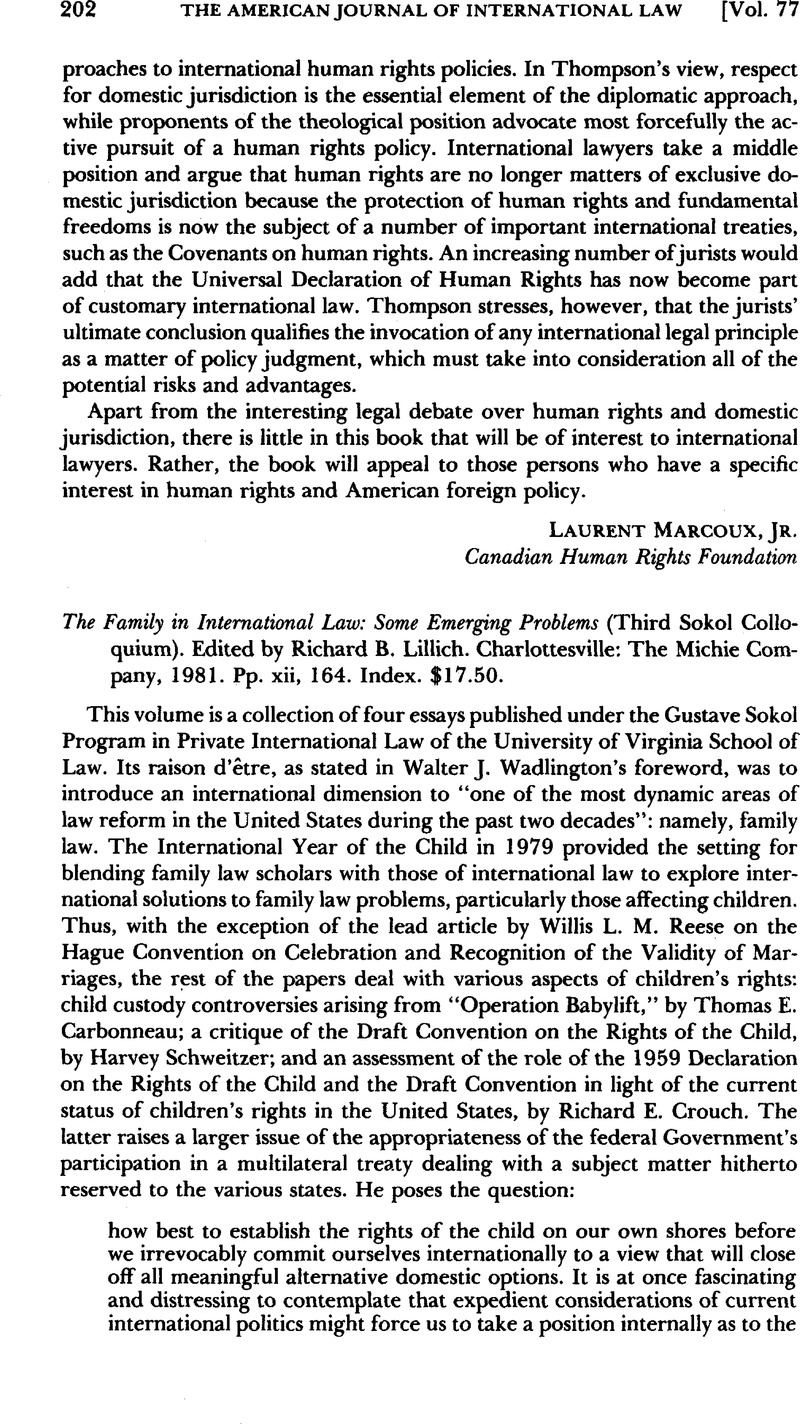No CrossRef data available.
Published online by Cambridge University Press: 27 February 2017

1 The bases for such a claim may be briefly summarized: section 301(g) of the Immigration and Nationality Act confers U.S. citizenship “at birth” upon a person born abroad, one of whose parents is an American citizen. This is qualified, however, by section 309(a), which states that, if only the father was a U.S. citizen, the child would be denied U.S. citizenship unless “the paternity of such child is established while such child is under the age of 21 years by legitimation” (no such restriction is placed on the mother). According to recent Supreme Court decisions, section 309 might be challenged as violating the Equal Protection Clause of the 14th Amendment in two major aspects: discrimination based on sex (Caban v. Mohammed et ux, 441 U.S. 380 (1978)) and discrimination against illegitimate children (Trimber v. Gordon, 430 U.S. 762 (1976)).
The above view appears to be supported by the Department of Justice. Thus, in the Attorney General’s Report to the President on Women’s Equality (128 Cong. Rec. H5369, 5376 (daily ed. Aug. 5, 1982)), the following immigration and naturalization laws are listed under “Uncorrected Sex Bias in Federal Statutes”:
8 U.S.C. §1101(b)(lXD)—Defines “child” for purposes of obtaining a status, benefit, or privilege by virtue of the child’s relationship to its “natural mother” [and] 8 U.S.C. §1409— Child born out of wedlock “shall be held to have acquired at birth the nationality status of his mother . . .” (if mother is a U.S. citizen).